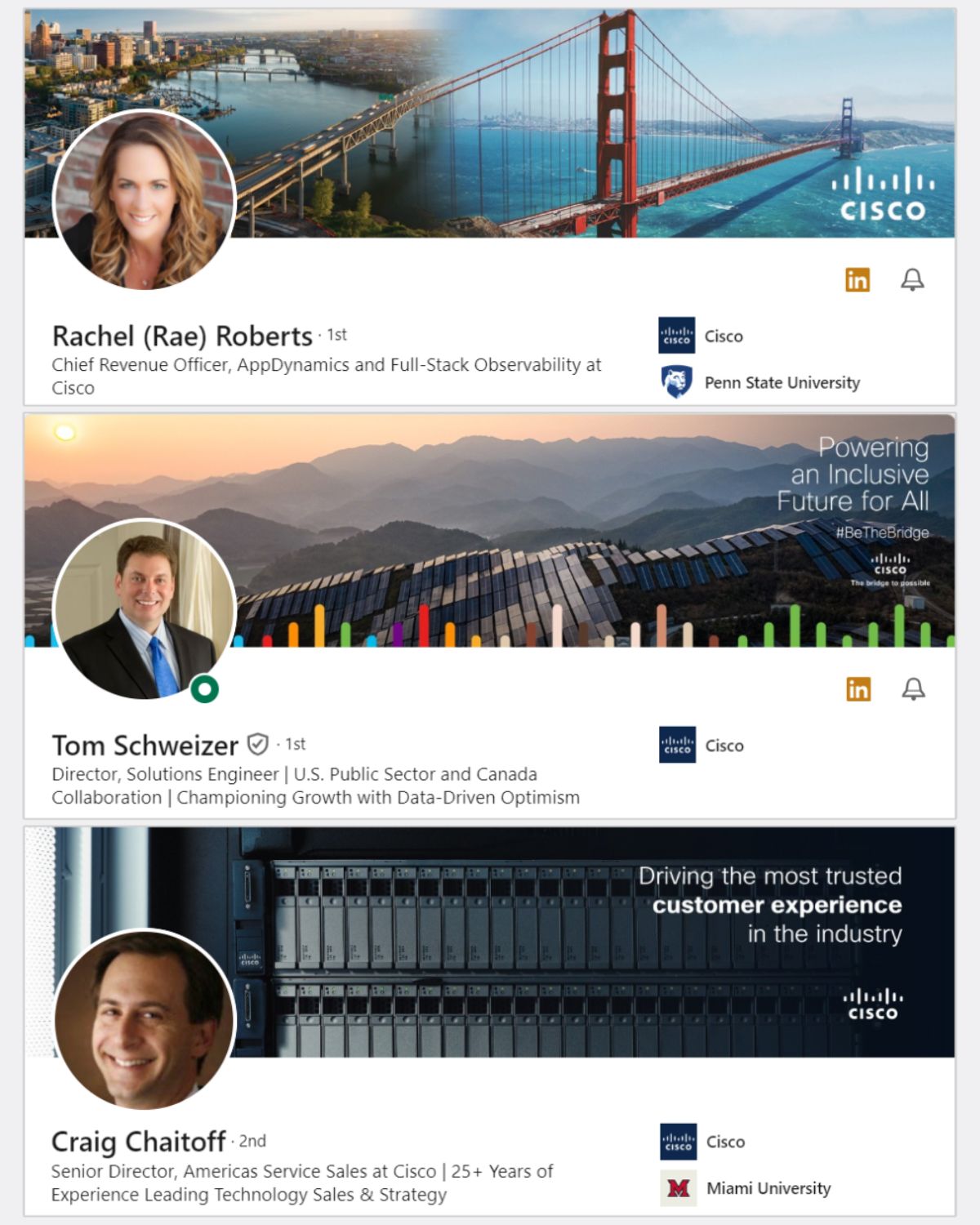If you ever wonder about the power of team alignment, take a look at the week we’ve just seen, culminating in the Super Bowl on Sunday. With 200+ billion US adults tuning in and activities that kicked off the previous Monday, the two teams, their fans, the sponsors, and the Super Bowl itself are a worthy marketing study of the impact of visual alignment. And that’s before we mention Taylor Swift.
Practical, timeless lessons can be learned from the sports world — hence the many sports analogies in leadership, sales, and marketing. But here’s one lesson that is both obvious and often overlooked: Your team needs to look aligned, connected, and moving in the same direction.
You could write off visual alignment as shallow or optional. Isn’t it more important for a team to actually be aligned, connected, and moving in the same direction? Absolutely! But don’t be quick to discount the impact and value of making that unity visible — inside and outside the organization.
Why Visual Alignment Matters
Creating a unified appearance on social media, or in general, increases the speed of building trust and relationships with multiple stakeholders, including investors, customers and prospects, employees, potential recruits, and the media.
-
- A social media presence that reflects a team’s alignment demonstrates professionalism and a shared commitment to the business’s vision and goals. It builds credibility with investors that a team is equipped to execute their business plan efficiently, overcome challenges, and manage effectively.
- A social media presence that reflects a team’s alignment demonstrates professionalism and a shared commitment to the business’s vision and goals. It builds credibility with investors that a team is equipped to execute their business plan efficiently, overcome challenges, and manage effectively.
-
- Consistent presentation across platforms and communications also increases brand recognition, making it easier for your current and potential customers to identify and remember your brand. This consistency fosters trust among your target audience, as they come to know what to expect from your brand.
-
- When your team presents a unified front, it ensures that your messaging is coherent and aligned with your brand values. This clarity prevents mixed or diluted messages for customers, and it serves to differentiate your product/company in a crowded market.
-
- Lastly, unified team appearance and culture have profound effects on recruiting and retaining employees. When team members feel like part of a cohesive unit, they’re more likely to become brand ambassadors, positively representing and promoting the brand both online and offline. And, a cohesive and aligned team can be a significant draw for potential employees and a key factor in retaining current ones.
You can build an aligned presence on LinkedIn by focusing on three key areas:
#1 Visuals
Header Graphics: Skip the matching shirts (though they can be fun) and go for eye-catching header graphics. Make it easy for your team to jump on the bandwagon by creating at least one (and ideally several) branded graphics, so they can choose which they want to use.
Use a unifying theme, like positioning your logo in the same place on the images, and using your brand colors and font. Here are some possible themes:
- Solution or Product — Include the product name, the problem it solves, and maybe a screenshot.
- Customers — Use a photo of the type of people you serve or an image that resonates. This can be a stock photo.
- Team — Use a photo of your team. This is a great way to showcase a strong culture, but it’s hard to keep up to date as team members come and go. If that’s an issue, consider creating a collage of photos from team activities.
- Values — Create graphics that highlight causes that are important for your business — DEI, sustainability, etc.
- Call-to-Action — Feature your best lead magnet and include the URL where people can get it.
- Event —If you have an upcoming event, such as a user conference or exhibit, you can include the name, location, and date of the event, plus any promotion you are running.

Cisco and its executives demonstrate how a wide range of header graphics can create a unified look across multiple profiles.
Profile Photos: You can build visual alignment using profile photos, too. Hire a photographer for a company shoot or simply set guidelines for style, background, attire, and cropping of the images.
Pro Tip: If your budget allows, offer your team headshots by a seasoned photographer. You’ll be amazed at the moral-building power of a fun photo session that makes each team member feel valued and special.
Company Logo: Make sure that every employee links to your company’s page on LinkedIn in their job description. LinkedIn defaults to a nondescript graphic for every job description, but it’s a simple process to link to the company page and replace the plain default with your company’s logo — just choose the company as you input the job info. The logo appears not only with the job description but at the top of each person’s profile (top right, just below the header graphic). Help your employees add this feature by drafting short instructions for linking to your page — and make sure your LinkedIn company page is up to date.
#2 Featured Section
The Featured section runs near the top of your profile and allows you to showcase samples of your work, news stories, and links to articles or websites as evidence of your skills and experience. Build credibility by encouraging your team to highlight the best articles about your business. For example:
-
- Was the company covered by the mainstream press or a respected industry journal?
- What are your biggest milestone announcements from the past couple of years? Announcements of your last round or an important partnership are good here.
- What educational materials are important? Do you have a blog post, video, or podcast that explains core concepts or other differentiators?
- You can also ask your team to link to your best lead magnet or the registration page for an upcoming event.
#3 Company Description
Lock in company alignment on LinkedIn by coordinating the way your team describes the company. Make it easy for them by drafting a short description of the company (1-3 paragraphs) that hits your key message themes (who you serve, what problems you solve, what results you achieve) and has the latest statistics. Encourage people to use the description in their Experience or About sections. But they should also add to it, explaining their role and responsibilities.
Pro Tip: Nothing destroys the perception of an aligned team like people citing conflicting statistics about sales, growth, revenue, or anything else important. Make this information clear and easily available to your team — and update it often.
Make It Happen
As you implement visual alignment, consider these steps to encourage your team to join in:
-
- Focus first on getting the customer-facing people on brand — your leadership team (especially co-founders, COO, CFO), subject-matter experts and thought leaders, sales team, and customer support staff.
- When you acquire another business, pay particular attention to getting the new team on board with using your brand. You may want to offer special graphics and language for their group because they are likely very proud of the business they built and may not be ready to let the old branding go.
- You can’t mandate people using your preferred branding. LinkedIn profiles belong to the individuals, not the company. But by focusing on the aspects of the business your team is most proud of, and providing support to help your employees implement the latest messaging and graphics, you will get most of your team on board.
Would You Like Help?
Aligning your team visually not only enhances your brand’s presence but also fosters a sense of unity and purpose among team members. It’s a strategic investment in your team’s identity and cohesion that pays dividends across all facets of your business.
If you’re looking to elevate your team’s alignment and presentation on LinkedIn, our team is here to help. We offer tailored solutions to ensure your team not only looks unified but feels valued and privileged, ready to represent your brand with confidence and professionalism. Contact us on LinkedIn or book a quick call, and let’s talk about how to make this vision a reality for your team.

